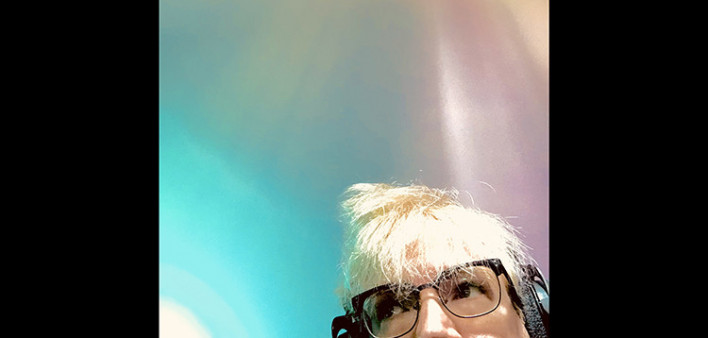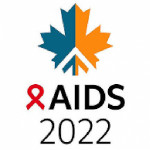Recently I spoke with The International AIDS Society as part of their HIV Unmuted podcast series. The episode that I am on focuses on the 1990s, you can learn more about the episode and listen to it by going here. Dr. Ho is featured, and you’ll also hear from Nathaniel Hall. The It’s A Sin star shares his experience testing positive at age 16. Doreen Moraa Moracha, a social media influencer from Kenya who was born with HIV in 1992, talks about the stigma of living with HIV.
The discussion brought up a lot of memories and feelings. When I discuss my experiences living with HIV, it usually hops from 1987 to when Gwenn and I met and fell in love, which was 1998. If the 90s comes up, it’s a drive-by explanation of why it was impossible for me to disclose my status to my first love in high school followed by why I decided to open up about my status two years after high school...
In terms of personal growth, however, there will never be another decade like it, unless I have a spiritual awakening and form a popular cult that subsists only on iced mochas and reruns of The Golden Girls. Short of that, I don’t think I have the mortal bandwidth to grow in the ways I did during those ten years, which saw the advancements in HIV treatment that would ultimately save my life.
The 14 year-old that met his favorite band in June of 1990 would have been delighted to know that he’d see the rest of the decade, even though part of his self-defense system was living day-to-day, week-to-week and when he was feeling adventurous, month-to-month. It wasn’t that I thought I was going to die soon. Part of my ability to enjoy my life hinged on that belief. Intellectually, I understood that a decline in health was a very real possibility. Fortunately, that decline came at the end of the decade, in 1999, a few years after I went public with my status.
I’m convinced I wouldn’t have survived if I hadn’t turned a corner with regard to that. Because I doubt I would have gone on meds. Heck, at age 23 with declining t-cells and friends who were strongly suggesting that I needed to start on treatment, it was still hard to start. After opening up, I was living in a fantasy world where HIV medications and those side effects weren’t something I’d have to deal with. And while I’d made great strides in how I handled the stigma of HIV, which was no longer my deep dark secret but instead a part of my life that I’d lean into when meeting strangers, I was still coasting on the attitude that the virus wouldn’t get me today... or tomorrow... or next month or even this year.
But February of 1999 spawned a monster. Right after Gwenn and I took our first road trip together to NYC for a 5-year anniversary of POZ photoshoot, I returned home feeling tired. Then I got sick, losing my appetite which spiralled into a thirty pound weight loss. Labwork told the tale of what was happening under my increasingly baggy-fit clothes, but old habits and pyschological crutches can be hard to put down. A conversation I had with my friend, Stephen Gendin, from a short-lived move to NYC in 1996 came to mind. We were talking one night about my decision to tuck tail and return to living under my parents’ loving roof in Waynesboro, Virginia...
I was just wiped out. I’d never had a full month of work in my life, and all I did was sleep when I wasn’t working for Stephen’s prescription service and POZ. The experience was worth it, but it was also very telling where my health was concerned. Stephen offered a solution, encouraging me to go on HIV medications. He knew they’d improve my health, and when I declined I could tell it was very hard for him to swallow. He pressed- I refused. I’m sure it was baffling to someone who’d lost so many friends in the first half of the 1990s that someone who had the lifeline that others didn’t have would just casually say, “No thanks.”
At the worst of my decline in 1999, my friend Steve Schalchlin wasn’t as tender as Stephen was a few years earlier. Steve, a friend I’d made within weeks of going public with my website in 1996, could see the ravages that were taking place. When we met, he’d created his blog to keep his family updated on his own declining health. He didn’t expect to live, and then Crixivan gave him a second chance at health. “YOU’RE. GOING. TO. DIE! If you don’t start taking HIV meds. DIE!”
I was rocked on my heels, but that’s what happens when friends hit you with some truth. My new doctor, Greg Townsend, shared Steve’s view. And though his delivery was slightly different, his intent was the same: “So, which medication do you want to try?”
As fate would have it, the end of 1999 was much better than the beginning. My viral load was either undetectable or close to it, which allowed my t-cells to return. My energy levels returned quickly, and I was motivated to embark on a HIV educational speaking career with Gwenn, which would fill a good part of the next decade.
I’m thankful and humbled that the International AIDS Society wanted to speak to me about my experiences, which gave me the opportunity to think back on a decade that changed my life... a decade that gave me a second chance, just like Steve had. I wish more people had been afforded that opportunity. As long as I’m around, I’ll continue to do my best to enjoy the ride, continue to grow and honor the spirits of those we’ve lost.
Positively Yours,
Shawn








1 Comment
1 Comment